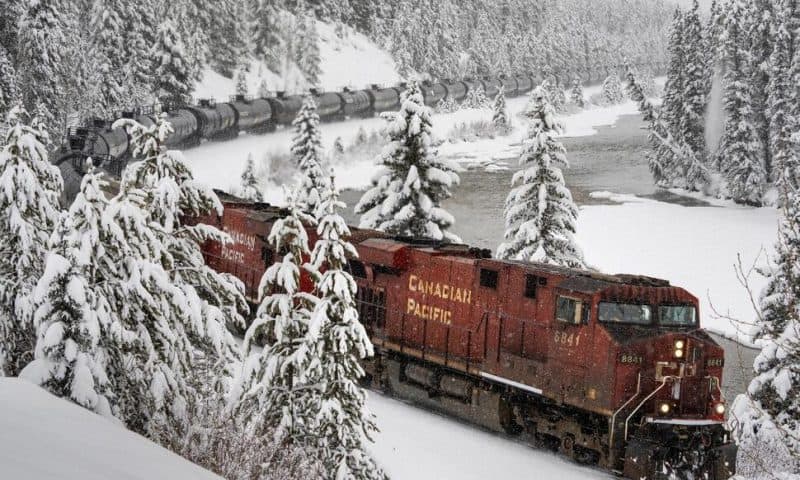The railroad merger that was nearly derailed by a bidding war earlier this year is moving forward although regulators will have the final say next year on Canadian Pacific’s $31 billion acquisition of Kansas City Southern railroad.
A railroad merger nearly derailed this year by a bidding war is moving forward ahead of a final say from regulators on Canadian Pacific’s $31 billion acquisition of Kansas City Southern railroad.
Canadian Pacific set up a voting trust that purchased Kansas City Southern Tuesday after shareholders of both railroads overwhelmingly approved the deal last week. The U.S. Surface Transportation Board will spend the next year reviewing the deal before deciding whether to give it final approval.
Executives for both railroads remain confident that the merger, one that will create the only railroad linking Canada, Mexico and the United States, will go through even though U.S. regulators haven’t approved a major railroad merger since the 1990s.
“We are excited to reach this milestone on the path toward creating this unique truly North American railroad,” Canadian Pacific CEO Keith Creel said Tuesday.
Canadian Pacific outmaneuvered Canadian National railroad to complete the deal it first announced in March even though Canadian National offered $33.6 billion for Kansas City Southern. Canadian National lost out in the bidding war because the Surface Transportation Board rejected part of its plan to acquire Kansas City Southern.
Even though the deal is still being scrutinized, Kansas City Southern shareholders will be paid $90 cash and 2.884 Canadian Pacific shares now. Canadian Pacific is also taking on $3.8 billion of the Missouri railroad’s debt.
Canadian Pacific issued 262.6 million new shares Tuesday to complete the purchase. It also took on $8.9 billion of new debt this fall to pay for the acquisition. CP said it expects to pay roughly $21 million in interest on that debt during this quarter.
But even with the deal expenses, Canadian Pacific said Tuesday that it expects its earnings per share this year to be up by a percentage in the high single digits. The railroad believes volume will be roughly flat this year after severe flooding and wildfires in British Columbia disrupted rail traffic.

